Island Classroom: IMAS-NTOU Joint Workshop in Matsu
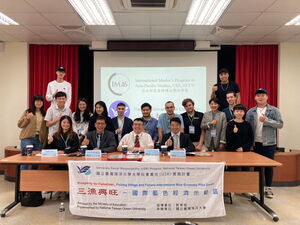
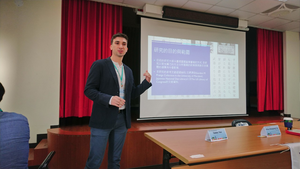
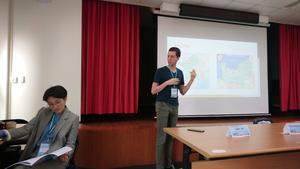
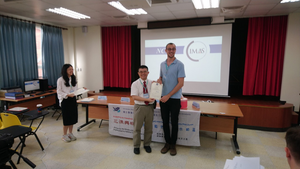
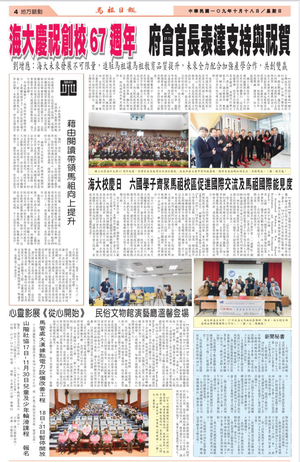
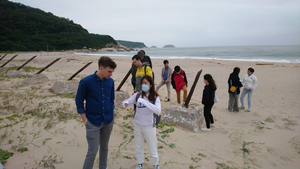
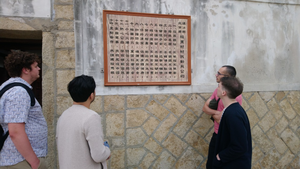
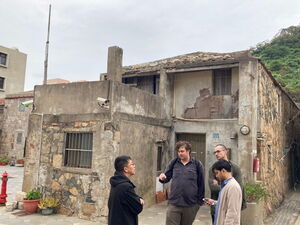
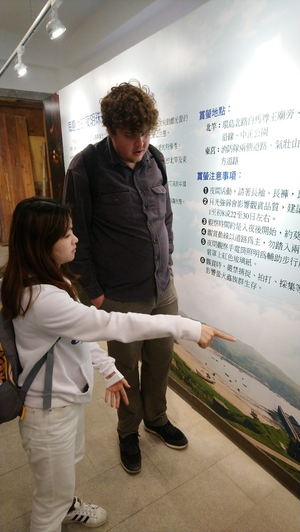
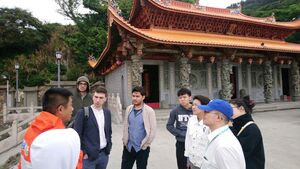
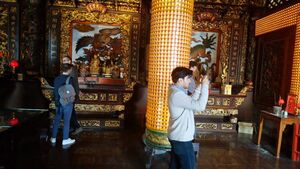
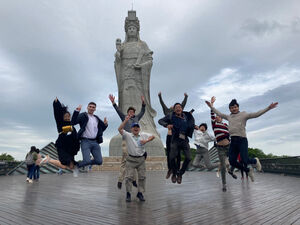
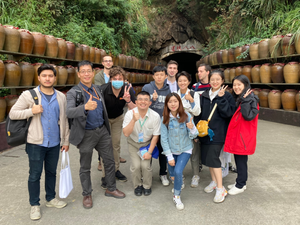
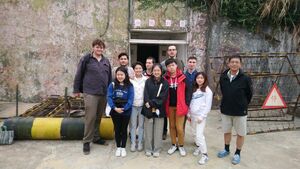
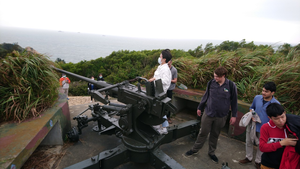
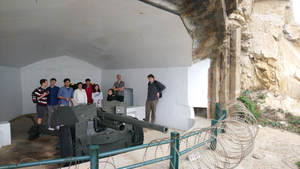
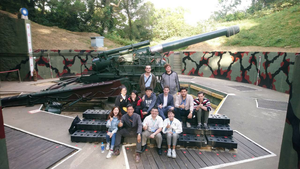
Date :
2020-11-06
Department :
International Master's Program in International Communication Studies
【Article by the College of Social Sciences】
The International Master’s Program in Asia-Pacific Studies (IMAS) cooperated with the Outreach Office at National Taiwan Ocean University (NTOU) in order to hold a joint workshop, titled “International Workshop for War, Regional Revitalization, and Sustainable Development of Islands,” at the NTOU Matsu Campus on October 16th and 17th. Six IMAS students, from Spain, the US, France, Korea, and Turkey respectively, as well as four NTOU students joined this workshop. All participants not only extended their knowledge of island development, the Cold War, and regional revival, but also were impressed that the Matsu islands could become their classroom.
The workshop started at the NTOU Matsu campus. The campus, located on Beigan Island, is surrounded by many traditional Matsu buildings. There are also many anti-tank obstacles in neighboring beach, artifacts of the tense relations between Taiwan and China. Philip Hsiaopong Liu, Professor and the IMAS director, stated that the NTOU campus itself is a historical and political site and effectively inspires students from both schools to study.
Just a few miles away from the campus, students found that many bunkers, which were originally designed to defend invasions from Chinese mainland, have been redesigned to cultural attractions and therefore generate revenue from tourists. This tourism-based style of regional revival strategies also apply to old military tunnels, which used to be humid accommodation for soldiers, have turned out to be perfect storerooms to age liquor.
Apart from learning on land, when taking boat from Beigan Island to Nangan Island, the students soon understood how close Matsu and mainland China were, which led to a better understanding of the bilateral links in the past hundreds of years. Ferit Oguzturk, an IMAS student from Turkey, said that his country also had similar experiences with neighbors, and some could apply to contemporary cross-strait relations. NTOU Professor Tseng Sheng-wen pointed out that these island experiences were not only providing new information to the students, but also provided a new way of studying.
In the workshop, other than discussing development experiences in Japan and Taiwan, Kim Sohyun, an IMAS student from Korea, analyzed development problems of islands between North and South Korea. The presentation by Jules Legouis, from France, attracted much attention. He argued that by designing the location of Allied landing in 1944, Normandy has became an important war memorial and museum, which generates a total income of about 160 billion NTD, roughly half of Taiwan’s yearly defense budget, from tourists. Two audience members in the workshop, Mr. Chun-chieh Wang, Chairman of Hung Shun Marine Co., Ltd and Ms. Tammy Tsai, Director of Matsu Community Empowerment Network, both believed that Normandy experiences are valuable to economic development in Matsu.
IMAS Director Philip Hsiaopong Liu points out that a workshop on the outlying islands of Taiwan is a new model of IMAS innovative teaching. IMAS thanks NTOU for providing the Matsu campus so that IMAS international students could meet with Taiwanese students in different places, as well as inspire new ways of thinking. IMAS will continue to hold workshops with other schools in the future, and he hopes to see more students to join IMAS family.
The International Master’s Program in Asia-Pacific Studies (IMAS) cooperated with the Outreach Office at National Taiwan Ocean University (NTOU) in order to hold a joint workshop, titled “International Workshop for War, Regional Revitalization, and Sustainable Development of Islands,” at the NTOU Matsu Campus on October 16th and 17th. Six IMAS students, from Spain, the US, France, Korea, and Turkey respectively, as well as four NTOU students joined this workshop. All participants not only extended their knowledge of island development, the Cold War, and regional revival, but also were impressed that the Matsu islands could become their classroom.
The workshop started at the NTOU Matsu campus. The campus, located on Beigan Island, is surrounded by many traditional Matsu buildings. There are also many anti-tank obstacles in neighboring beach, artifacts of the tense relations between Taiwan and China. Philip Hsiaopong Liu, Professor and the IMAS director, stated that the NTOU campus itself is a historical and political site and effectively inspires students from both schools to study.
Just a few miles away from the campus, students found that many bunkers, which were originally designed to defend invasions from Chinese mainland, have been redesigned to cultural attractions and therefore generate revenue from tourists. This tourism-based style of regional revival strategies also apply to old military tunnels, which used to be humid accommodation for soldiers, have turned out to be perfect storerooms to age liquor.
Apart from learning on land, when taking boat from Beigan Island to Nangan Island, the students soon understood how close Matsu and mainland China were, which led to a better understanding of the bilateral links in the past hundreds of years. Ferit Oguzturk, an IMAS student from Turkey, said that his country also had similar experiences with neighbors, and some could apply to contemporary cross-strait relations. NTOU Professor Tseng Sheng-wen pointed out that these island experiences were not only providing new information to the students, but also provided a new way of studying.
In the workshop, other than discussing development experiences in Japan and Taiwan, Kim Sohyun, an IMAS student from Korea, analyzed development problems of islands between North and South Korea. The presentation by Jules Legouis, from France, attracted much attention. He argued that by designing the location of Allied landing in 1944, Normandy has became an important war memorial and museum, which generates a total income of about 160 billion NTD, roughly half of Taiwan’s yearly defense budget, from tourists. Two audience members in the workshop, Mr. Chun-chieh Wang, Chairman of Hung Shun Marine Co., Ltd and Ms. Tammy Tsai, Director of Matsu Community Empowerment Network, both believed that Normandy experiences are valuable to economic development in Matsu.
IMAS Director Philip Hsiaopong Liu points out that a workshop on the outlying islands of Taiwan is a new model of IMAS innovative teaching. IMAS thanks NTOU for providing the Matsu campus so that IMAS international students could meet with Taiwanese students in different places, as well as inspire new ways of thinking. IMAS will continue to hold workshops with other schools in the future, and he hopes to see more students to join IMAS family.
